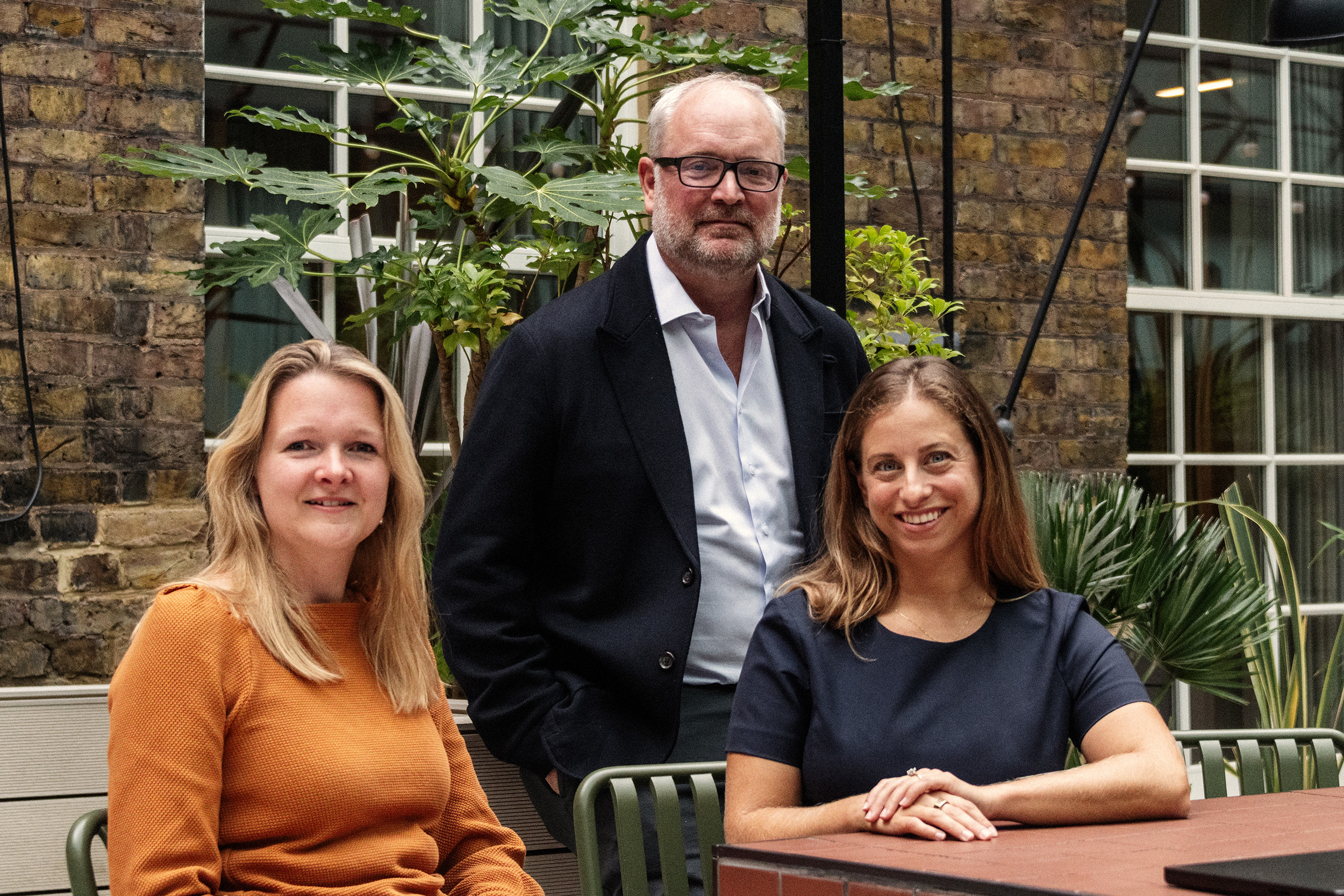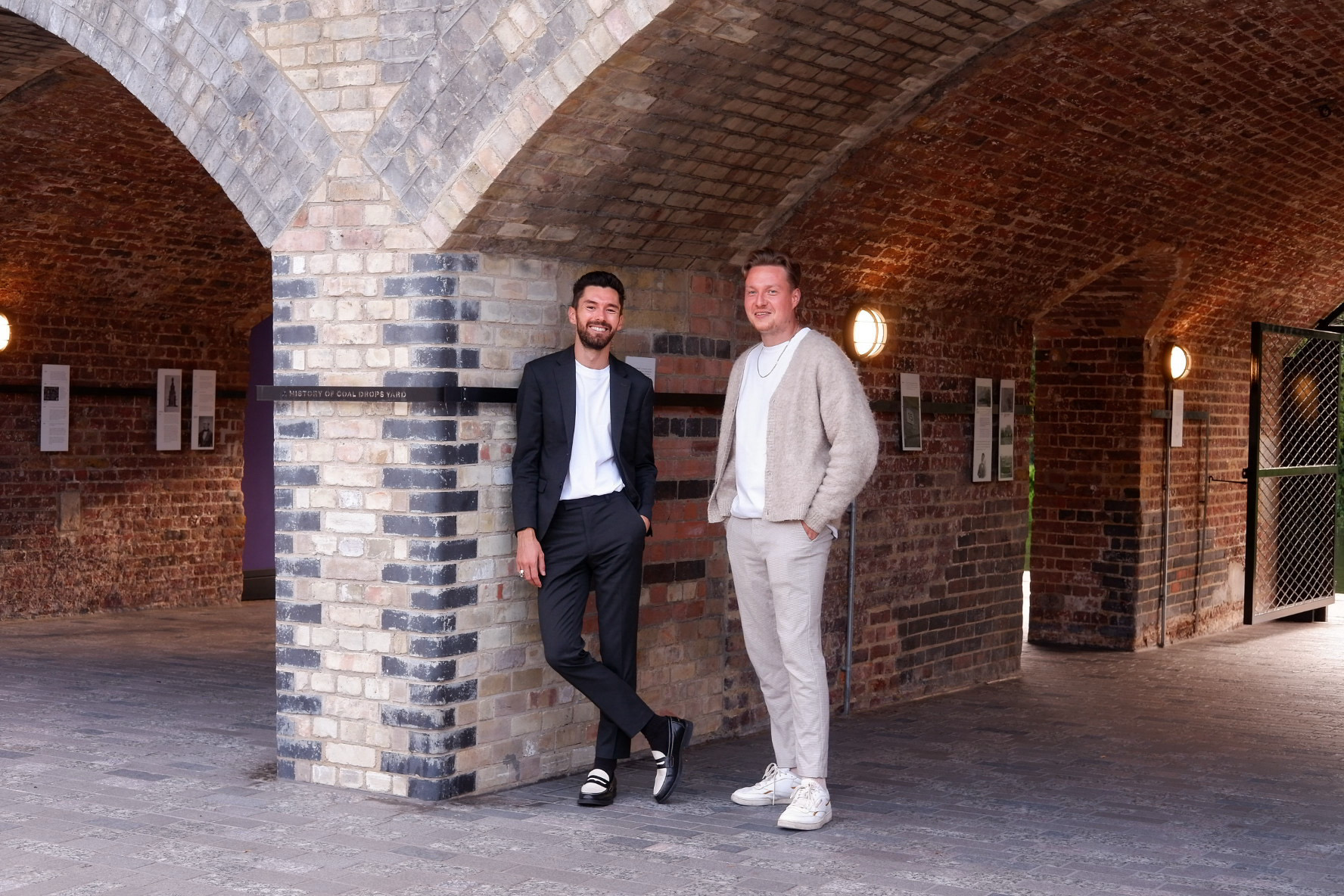George Windsor joins Notion Capital as Director of Research and Intelligence to augment Notion Capital’s support of high growth business software companies. May 2023.
A kernel of curiosity to a canopy of tech knowledge


I am delighted to have joined Notion Capital to 1) build our brand, and develop thought leadership, 2) spearhead investment in knowledge creation with our partners, and 3) accelerate the growth of our portfolio companies through Notion’s new Research and Intelligence function.
My career in tech started in academia in the early 2010s. The tech ecosystem has radically changed since then, and so have I.
I’ll introduce myself, and why I have joined Notion Capital, attempting to blend my journey in research with some of the broader changes we’ve seen over the last decade in European tech.
—
The ethos of Start, Build, Scale at Notion Capital usefully simplifies complex processes underpinning company growth, and highlights the discontinuity of ‘what works’ at different stages of a scaling journey.
For me, this is what good research is all about - simplifying complexity, and distilling from it something useful, or illuminating which can be applied to solve real challenges.
A few years ago I might not have thought about change in this way. But with a deeper insight into the workings of tech startups and scaleups as Director of Data and Research at Tech Nation, founders and the growth of their companies has come to represent something transformative, and important to me.
These companies are far more than the sum of their parts - their growth represents emerging industries, and writ large they create seismic change (individually and collectively). The shocks that they produce are something that we can try to measure, understand, and learn from.
Academic roots, branching into creativity and tech
My journey in tech started as an academic, working on my PhD on migration and entrepreneurship, supported by Loughborough University and Paragon Law. It was a process that challenged me to think long and hard about the theoretical underpinnings, and empirical realities of people who took enormous risks to move to the UK.
What has happened in European tech since then?
Well, looking right back to 2011 when I started, the last decade of tech growth has been impressive to say the least. We have seen masses of tech value generation (Europe’s tech ecosystem is now valued at $3.8tn from $322bn in 2012), job creation (nearly 23mn people working in tech in Europe, from just under 6mn six years ago), and global leadership (Europe is vying with the States for the top position when it comes to unicorn creation, investment, and overall value).
My research has tended to focus on the UK, where we have seen scaleups realising just under $600bn in value over the last ten years- achieved by an exit of some form, whether a conventional acquisition, SPAC or public listing.
I moved on from my PhD to work as a policy researcher at Nesta - the UK innovation foundation for social good, diving deep into the creative economy, political sentiment tracking, data, and digital tech.
Constructing a tech hothouse
After four formative years working at Nesta with organisations like the Royal Statistical Society, HM Government, Adobe, Pearson, and the University of Sheffield, I went on to launch, grow and head up the research team at Tech Nation, the UK network for ambitious entrepreneurs.
When I joined in 2017, Tech Nation looked quite different - reflective of UK tech’s maturity at the time.
What was the economic backdrop?
In 2017 we reported on UK tech’s bumper harvest of just over $11bn VC investment, and $29bn across the whole of Europe.
Coming from the creative industries, in a time when VC investment for UK firms was just making the mainstream, I was taken aback both by the pace of change in tech, and the importance of venture capital - something I will continue to reflect on, I suspect.
Fast forward to 2021, and I remember launching the annual Tech Nation Report with a pre-recorded speech, from my living room, still in semi-lockdown, when investment was double that of 2017, but the UK was still playing fourth fiddle - to the US, China, and India, and other European nations like France and Germany were continuing to earn their scaleup stripes.
We grew the team, moving beyond the UK government grant funded work we had initially set out to fulfil, to create commercial research services and products alongside partner sponsored work. It was a pleasure to work with the good and the great of UK tech: HSBC, Sage, BNP Paribas (and BNP Paribas Real Estate), Cognizant, EY, JLL, Wilson Sonsini, Sony, Harwell Science and Innovation Campus, Fragomen, Peak, Fruugo, GoCardless, Fintrail, LinkedIn, and many more superb companies, investors and leaders.
Forward again to early 2022 when Tech Nation collaborated with Google for Startups, on the research project, A Decade of UK tech, and we’d seen UK investment rocket to $41 billion over the remainder of 2021 - the European total was over $120bn that year.
Few believed the UK, and other European ecosystems could accommodate such change, but they did. My role was to understand how and why; capturing information for future decision making, and learning.
I had the privilege of working with a wide range of scaleups, corporate partners, and policymakers at Tech Nation. My true learnings took place in conversations with them, marrying the quantitative realities I had explored on my laptop with the lived experience of leaders on the ground.
Tech in full bloom
Tech Nation ceased operations at the end of March 2023, and it has been an honour, between then and now, to work with incredible organisations such as Newfound Global, Beauhurst, Extend Ventures, Startup Genome, Systemic Innovation, and Founders Forum Group.
What does the future hold for European tech?
Based on conservative projections, the European tech ecosystem could be worth upwards of $7tn by the end of the next decade. But, growth in value could be significantly augmented if systemic challenges, or failures are addressed.
I have written previously that there are tangible things we can do to get there. For me there are three priorities: 1) Plugging supportive, value-additive capital into all stages of company growth, 2) Rethinking talent gaps, and emphasising opening up access to opportunities in tech for all people. 3) Prioritising value realisation.
Through my work at Notion Capital, I aim to provide resources for evolving ecosystems; for policymakers, for corporates, and, of course, for founders, startups and scaleups - to help both imagine and catalyse change, helping to create a world that we all want to live in.
So, in five years time, I will hold myself accountable for:
- Brand building and thought leadership for Notion;
- Investing in knowledge with partners; and
- Accelerating the growth and decision making of our portfolio.
But perhaps most importantly to make our extraordinary startup ecosystem even better, helping Europe fulfil its potential through unparalleled access to information and intelligence to help them succeed.
It’s a privilege to join Notion Capital at this pivotal time. I look forward to developing that canopy of knowledge that I refer to in the title of this article, which will provide cover for, and support the incubation of our vibrant European tech companies for years to come.







